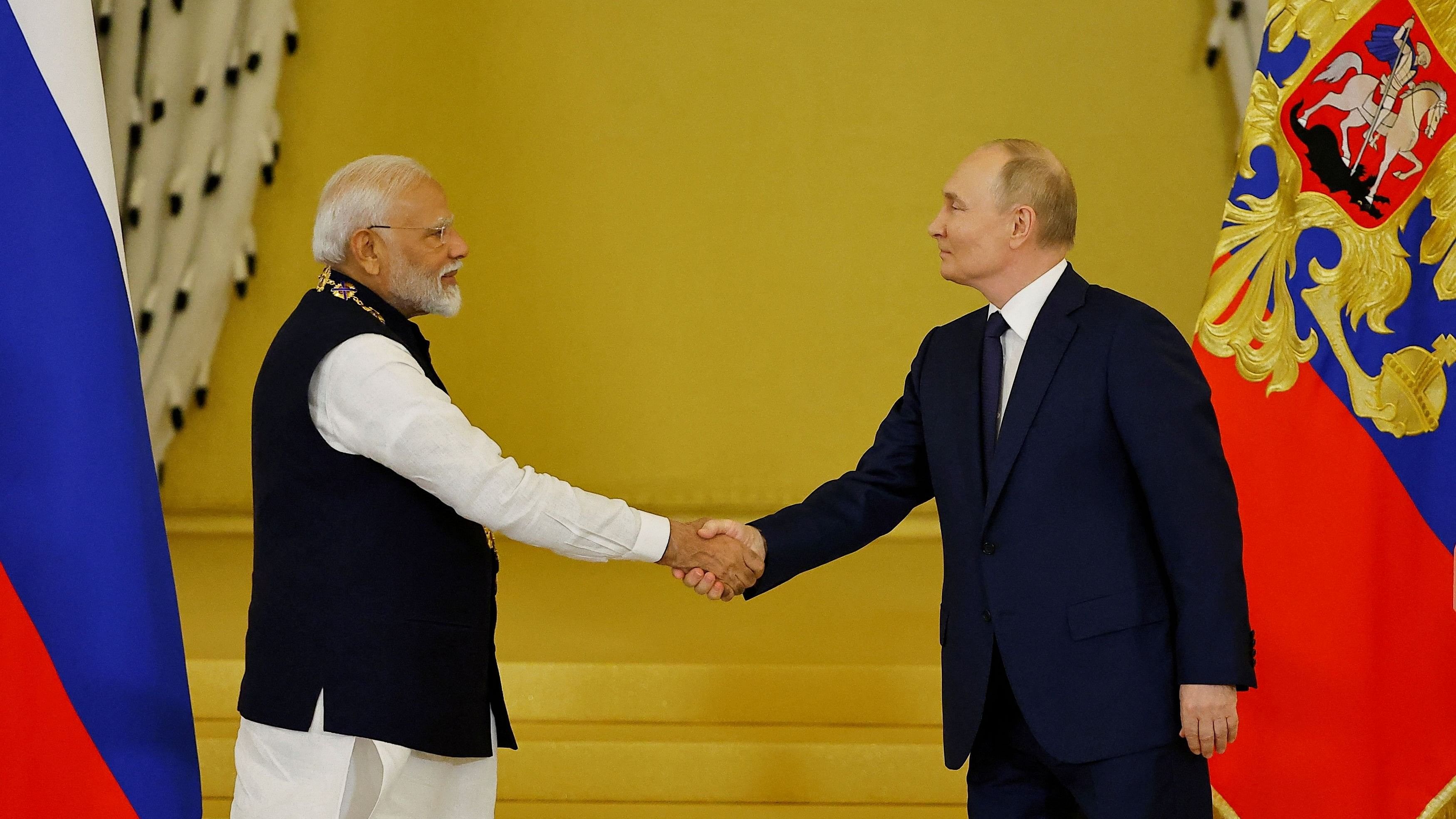
Russia's President Vladimir Putin with Prime Minister Narendra Modi
Credit: Reuters Photo
By Viktoria Dendrinou and Alberto Nardelli
India has surged to become the second-biggest supplier of restricted critical technologies to Russia, US and European officials said, highlighting the challenge in efforts to choke off exports fueling President Vladimir Putin’s war machine.
Indian exports of restricted items such as microchips, circuits and machine tools surpassed $60 million in both April and May, about double from earlier months this year, and leaped to $95 million in July, according to the officials, who asked not to be identified discussing private assessments. India is exceeded only by China.
Even more frustrating to Ukraine’s allies, some of them said, is that envoys who raise the issue have received little response from their Indian counterparts. India’s Ministry of External Affairs declined to comment when asked about the trend.
The most recent data means almost a fifth of the sensitive technology that goes into Russia’s military-industrial complex got there via India, the officials said.
The fresh data underscores the difficulty the US and its allies have faced in crimping Russia’s ability to fight in Ukraine two and a half years since Putin’s forces invaded. Exports of most such dual-use items directly to Russia are banned, so the country has taken to buying them from third countries — sometimes from unwitting subsidiaries of western firms or networks of intermediaries.
A State Department spokesperson said Friday that the department would reiterate rising concerns with Indian government officials as well as companies.
The US and European Union have focused most of their efforts on a list of technologies found in Russian weapons or are needed to build them.
As allies work to curb some of these routes — Turkey and the United Arab Emirates have been two big transshipment points — new hubs have emerged. They include India, Malaysia and Thailand, according to the people.
India’s role in the the shipment of such goods has presented a further challenge because US and EU policymakers want to nurture partnerships with Prime Minister Narendra Modi’s government even as he cultivates ties with Putin. India has also emerged as a top buyer of Russian oil despite allied efforts to restrict sales.
A key driver of the shift is the vast stock of rupees Russia has accumulated from such oil sales, according to the officials.
India’s role as a transshipment point has made it a focus for European Union and US sanctions agencies in recent months. Officials from those nations have visited several times in efforts to get authorities to crack down on shipments, and several Indian firms have come under western sanctions.
In July, US Deputy Treasury Secretary Wally Adeyemo wrote a letter to senior officials at the Confederation of Indian Industry warning of the sanctions risks faced by Indian companies and banks that do business with Russia’s military industrial base, according to a copy of the letter obtained by Bloomberg News.